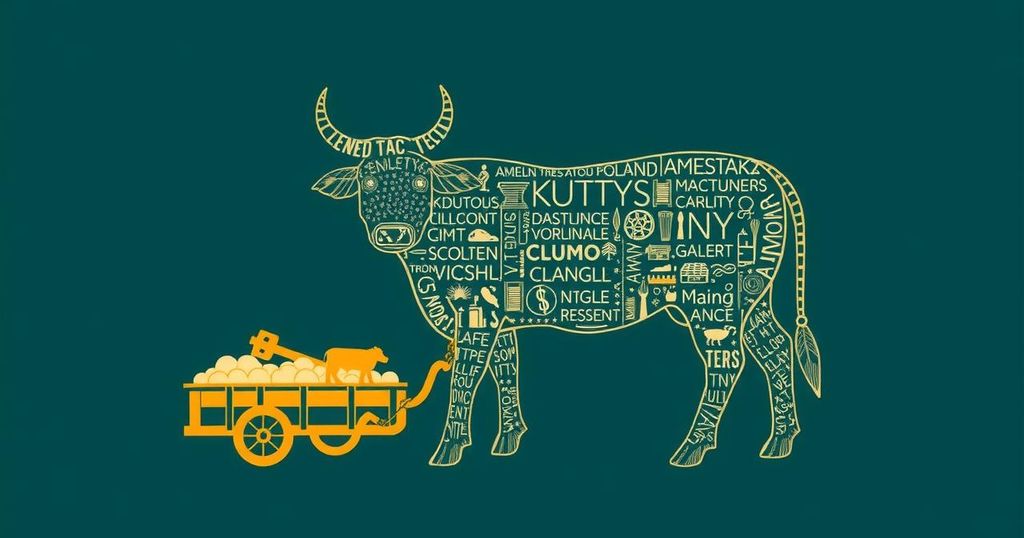Concerns regarding a potential meat tax in the UK were addressed amid the Cop29 summit, where Prime Minister Keir Starmer unveiled an 81% fossil fuel reduction target by 2035. Assuring the public that there will be no mandates for vegetarianism, Downing Street confirmed meat taxes are not under consideration. The government’s focus lies in strengthening renewable energy sectors while navigating varying sentiments in light of global climate discussions.
The recent discussions surrounding environmental policies have sparked concerns about potential meat taxes. On the inaugural day of the Cop29 climate summit in Azerbaijan, Prime Minister Keir Starmer revealed Britain’s accelerated ambition to reduce fossil fuel emissions by 81 percent by the year 2035. While Sir Keir assured the public that the government would not impose vegetarianism or boiler removal mandates, Downing Street had to subsequently confirm that any increase in meat prices remains off the agenda, following the Prime Minister’s ambiguous remarks regarding potential cost hikes. During his address in Baku, Sir Keir emphasized that the government’s new climate targets would not involve dictating personal lifestyle choices, stating, “The new goal is ambitious and that’s measured not by telling people what to do.” He reiterated that the primary objective is achieving clean power by 2030. This ambitious goal is in alignment with the recommendations of the UK’s Climate Change Committee (CCC), which advocates for significant reductions in meat and dairy consumption over the coming decades. At the conference, the Prime Minister outlined his vision for a future centered on renewable energy investment, asserting that the UK has a “huge opportunity to get ahead” in this sector. He stressed the importance of national security and economic growth through green jobs, stating, “There’s a global race on now to be the global leader on this. I want us to be in the race and I want us to win the race.” These climate discussions gain further significance against the backdrop of the recent re-election of Donald Trump in the US, whose administration has been characterized by skepticism towards climate initiatives. The Prime Minister remarked on the differences in environmental commitments between the UK and the US, reaffirming his stance on climate leadership by saying, “I am very clear in mine which is that the climate challenge is something that we have got to rise to.” As the summit progresses, the government faces scrutiny regarding its policies on climate change and how they will impact societal behaviors, including dietary preferences and energy usage. The assurances from Sir Keir and his administration reflect a balancing act between ambitious environmental goals and public sentiment regarding personal freedoms.
The article addresses the UK government’s initiatives aimed at combating climate change, particularly through updated fossil fuel reduction targets and dietary recommendations. The context is set during the Cop29 climate summit in Azerbaijan, where the Prime Minister discussed national strategies for promoting renewable energy and reducing greenhouse emissions. The involvement of the Climate Change Committee highlights the scientific basis for proposed reductions in meat and dairy consumption as part of the broader environmental agenda, while the climate policies are contrasted with the recent political developments in the United States.
The dialogue surrounding climate policies in the UK, particularly those concerning potential meat taxes and lifestyle changes, underscores the government’s aim to balance ambitious environmental targets with public acceptance. Sir Keir Starmer’s emphasis on clean energy goals and the importance of investment in renewables signals the administration’s commitment to environmentally sustainable practices. However, the clarity regarding dietary choices and costs indicates the political sensitivity surrounding such initiatives, especially in light of recent global political shifts.
Original Source: www.the-sun.com






